Don’t let the cute accents fool you.
Minnesota politics is Minneapolis politics, and Minneapolis politics is vicious.
Gov. Tim Walz, a former U.S. representative for Minnesota’s 1st Congressional District, which stretches from Wisconsin to South Dakota and from Iowa to the outskirts of the Twin Cities, learned to market himself as a moderate while achieving remarkable political success in one of the state’s more Republican-leaning corners. But his actual policy views are, for the most part, straight-up left-wing stuff: Under his governorship and a Democratic-Farmer-Labor (DFL) trifecta, Minnesota has been burning through the multi-billion-dollar surplus Walz inherited, mostly because Walz has never encountered a spending proposal he didn’t like—except for merit-based pay for teachers.
That fits in with the kind of campaign Kamala Harris plainly intends to run: an old-fashioned, pork-barrel, spend-all-the-money-on-all-the-things category-5, DEFCON-1 hootenanny of utter fiscal incontinence. Walz’s job is to sell that—and that’s the kind of thing that sells itself to a lot of voters—while convincing voters he is just another duck-huntin’ rustic from whatever is due west of the boonies.
It’s not a terrible plan. For one thing, people like free stuff. For another, while Donald Trump is much more of a give-people-free-stuff candidate than a traditional Republican candidate would have been if there were any of those left, the former president still depends on the votes and enthusiasm of atavistic Republican types whose most deeply held conviction is that these bums and hippies should just—all together now—“Get a job!” The Trump-style welfare statism now championed by Republicans is still only the watery blue skim version of the full-fat product Democrats are selling.
There are two things you need to know about Minnesota politics. One is that two-thirds of the state’s population lives in the Minneapolis-St. Paul metro area. The second is that Minneapolis does have two-party politics, but the two parties are factions within the DFL: the progressives and the ultra-progressives. (It’s like the inverse of statewide politics in Texas, where Republicans offer voters a choice between crazy right-wingers and rabid, carpet-chewing, monster-raving-loony right-wingers, and then wonder why all the cities are Democratic.) The radicals really came out of the bushes in 2017, taking down three traditional progressive Democrats on the Minneapolis city council. The Green Party had a seat on the city council from 2006 to 2022, and the council currently enjoys the services of socialist Robin Wonsley. (Wonsley was a graduate student at the time of her election and “aims to receive her degree in feminist studies and gender, women and sexuality studies.” Because, of course.) The arc of history has not bent invariably in the direction of Minnesota’s far left, but the trend has been clear enough.
There’s a lot of very Portland-style politics in Minnesota, a lot of screaming and accusations of racism and bad faith and class treason and that sort of thing. That isn’t Tim Walz’s style—but it is the style of the people who brought you Tim Walz.
None of that means that Walz doesn’t actually enjoy hunting or country life, or that he’s a phony, or that he’s a terrible human being, or anything like that. J.D. Vance’s recent efforts to paint Walz as a “stolen valor” fraud after his quarter-century of service in the National Guard is just a remarkable thing to hear from a man whose waking hours are dominated by the oratorical fellating of noted draft-dodging coward and fictitious bone-spur victim Donald Trump. What Walz’s left-wing politics mean is that Walz has left-wing politics, which isn’t that surprising, given the left-wing politics of the Democratic nominee.
But …
My theory of the case for 2024 is that the election is going to be decided by Nikki Haley Republicans, meaning in this case mostly politically moderate married women with traditional Republican leanings, who are not enthusiastic about Donald Trump as a candidate or as a man but who are not sold on the ultra-progressive agenda, either. Harris seems to have reached a similar conclusion, given how fast she is running away from some of her earlier, leftier positions.
If she were a smarter and bolder kind of politician, those flip-flops wouldn’t be a liability—they would be an opportunity to say, approximately: “We’ve had a decade or more of very divisive politics, and I’ve moderated some of my earlier positions because I’m not running to represent California in the Senate but to represent all of the American people as president. I hope my Republican friends will see fit to moderate some of their extreme views in the interest of building consensus and getting things done.”
(Sotto voce: “Or they can keep being weird.”)
So Harris has competing goals she’s speaking to with the choice of Walz. One, she wants to signal to progressives that she’s going to be on their side and then some as far as the spending goes even if she backs away from some of the unprofitable culture-war stuff. Two, she wants to signal to the middle that she’s going to be the kind of progressive who mainly wants to spend a lot of money, not the kind who wants to invest a lot in the unprofitable culture-war stuff. A conventional, middle-aged, white-guy progressive from Minnesota helps on both fronts.
Again, that’s not the worst strategy: Not only is it the case that Republicans cannot plausibly out-spend Harris’ Democrats when it comes to the age-old project of offering to bribe Americans with our own money, it also is the case that, whatever energetic flip-flopping he gets up to, Donald Trump cannot be anything other than a culture-war candidate. It’s the only song he knows how to sing. His choice of J.D. Vance emphasizes that. And that’s all VP picks really do: emphasize a theme or an interest.
Turning down the emotional temperature while turning on the money spigot is not the dumbest idea in American politics. All that spending will wreck the country in the long run, of course, but, conveniently for Harris and Walz, the long run comes after Election Day.
(Until it doesn’t.)
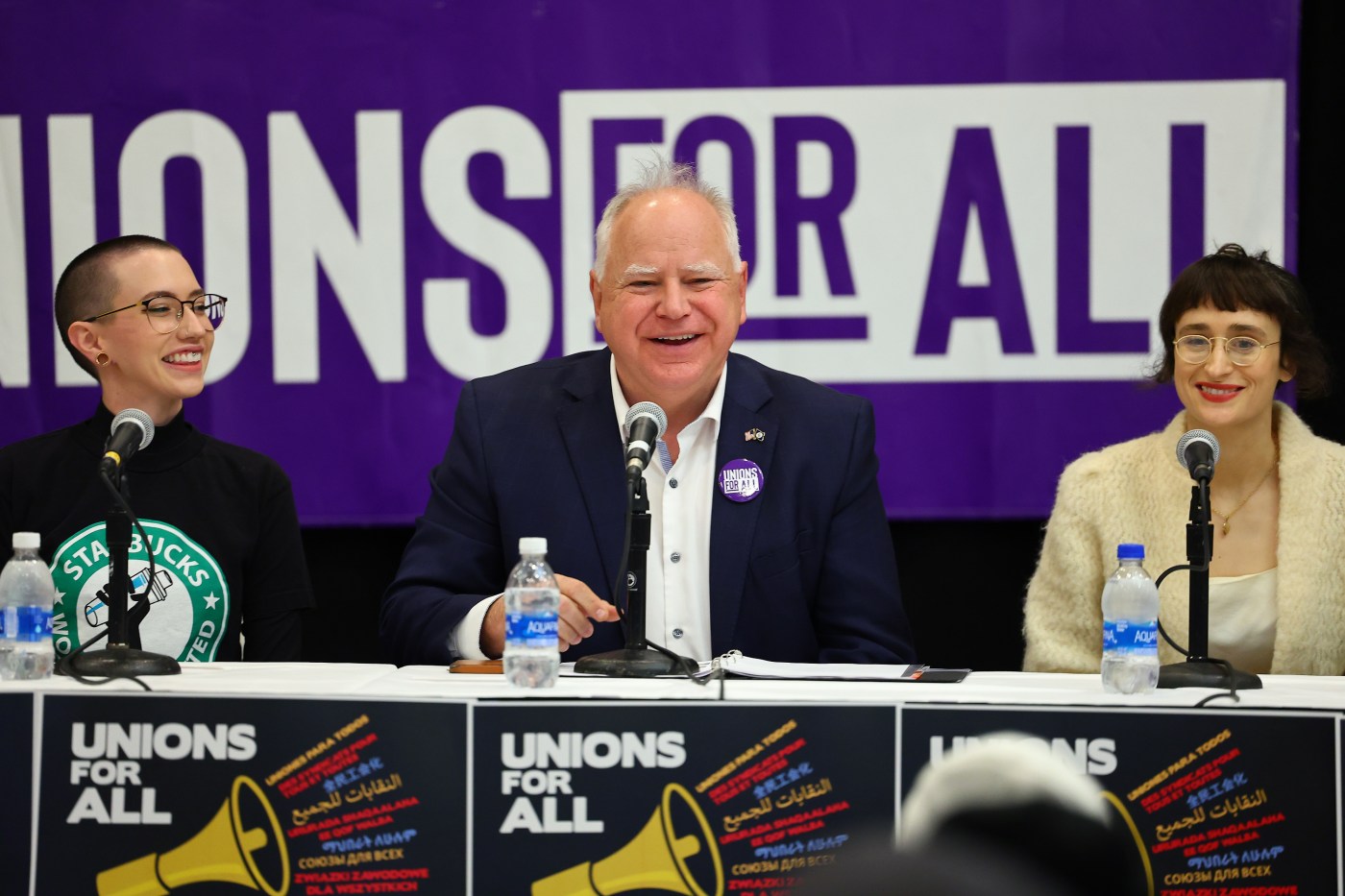

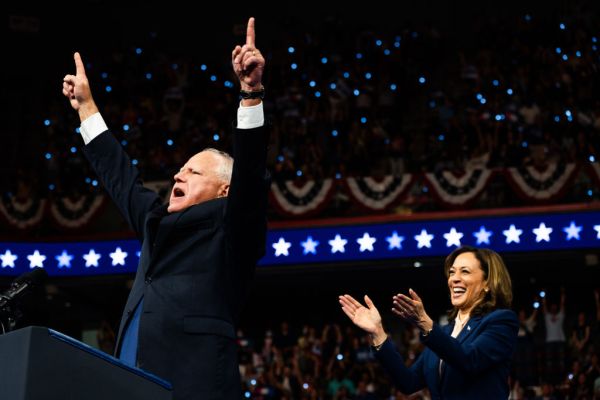
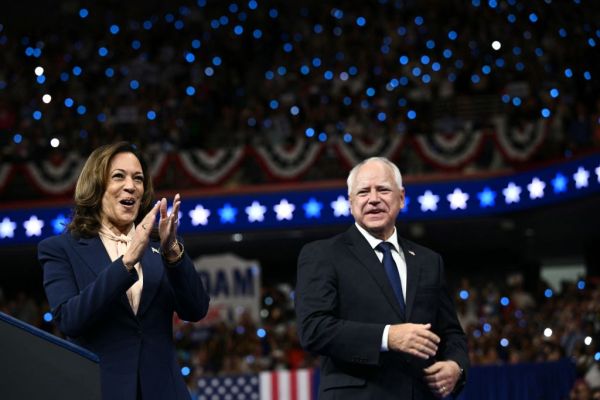
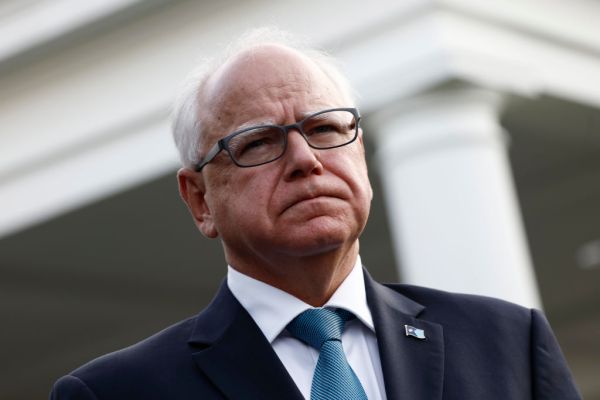

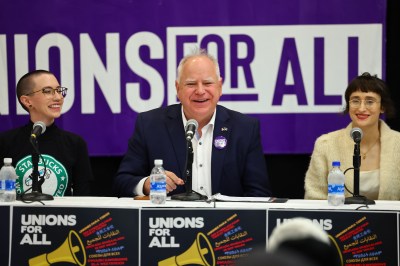
Please note that we at The Dispatch hold ourselves, our work, and our commenters to a higher standard than other places on the internet. We welcome comments that foster genuine debate or discussion—including comments critical of us or our work—but responses that include ad hominem attacks on fellow Dispatch members or are intended to stoke fear and anger may be moderated.
With your membership, you only have the ability to comment on The Morning Dispatch articles. Consider upgrading to join the conversation everywhere.